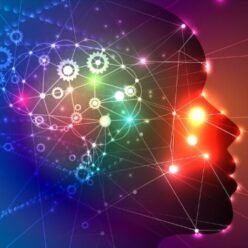What is vertigo? According to the Cleveland Clinic, vertigo is a sensation that the environment around you is spinning in circles. It can make you feel dizzy, off-balance and nauseated. Vertigo isn’t a disease, rather, it’s a symptom of varying conditions. While both dizziness and vertigo are considered balance problems, the two symptoms are different. Dizziness is an overall feeling of being unbalanced. With vertigo, you have a sensation that you’re moving or that your surroundings are spinning. Vertigo is a common issue, and nearly 40% of Americans experience vertigo at least once during their lifetime. Vertigo attacks can happen at any age, but they’re more common in people over 65. Women are somewhat more likely to experience vertigo than men, and may experience vertigo as a side effect of pregnancy.
There are two types of vertigo, peripheral vertigo and central vertigo. Peripheral vertigo happens when there is a problem with the inner ear, including BPPV and vestibular neuritis. BPPV occurs when tiny calcium crystals called otoconia become loose from their normal location on the utricle, a sensory organ in the inner ear. If the crystals become detached, they can flow freely in the fluid-filled spaces of the inner ear, including the semicircular canals (SCC) that sense the rotation of the head, in relation to the space around you. Vestibular neuritis on the other hand is a disorder that affects the vestibulocochlear nerve of your inner ear. This nerve sends information about your balance and head position from your inner ear to your brain. When this nerve becomes inflamed or swollen, as a result of a viral infection for example, it interrupts the way your brain reads the information. This results in vertigo and other balance-related symptoms.
Central vertigo can occur when there’s an issue with the brain or brain stem, including infection, stroke, brain tumors, or a brain injury. Vertigo can be a common symptom in individuals who have experienced a concussion or trauma to the head, neck, and craniocervical junction. This includes injuries that result from motor vehicle accidents, falls, assault, contact sports, etc. Also, in cases of head trauma, the impact of the force can cause debris in the inner ear canal to break loose. This will result in free-floating debris moving around in the inner ear and produce symptoms of vertigo and dizziness by signaling to your brain that you are moving when you are not.
It is imperative that you seek medical attention right away when you experience vertigo, in order to catch any life-threatening conditions in the early stages, and receive immediate treatment for a better outcome.
Note about balance –
The ability to maintain balance and orient ourselves to the outside world is vitally important. Symptoms of dizziness, unsteadiness, and imbalance have been most frequently attributed to sensory organization problems. Three systems in the body act in concert to maintain stable orientation and the sensation of being well balanced. These three systems are the visual system, the vestibular (inner ear) system, and the proprioceptive (sensory nerves) system.
Our experience
After her brain injury, Sarah had vertigo issues, but test results did not reveal the cause. We do not know if her vertigo was related to her brain injury, especially since her brain injury was not due to trauma. Her vertigo resolved on its own in short years. In my case, and despite my brain trauma, I did not have vertigo until age 60. But it seems to be common for the older population to have cases of vertigo, especially vestibular neuritis. After some testing, it was determined that the likely cause of my vertigo was vestibular neuritis, which may have been the result of an inner ear viral infection, but I never had any symptoms of inner ear infection.
Interestingly, my experience with vestibular neuritis symptoms reminded me a bit of some brain injury symptoms, especially cognitive fatigue, sensory overload, and brain compensation. It makes sense. The body is constantly compensating for vestibular issues by recalibrating the part of the brain that controls balance. The eyes are overworked, with all the excessive information it tries to capture and send to the brain, in order to maintain my balance while walking. My general energy ended about noonish, and I felt the dizzy effects, and cognitive fatigue. By the afternoon, I became like a zombie, I couldn’t read, watch TV, or work on my computer. Overload and fatigue. Incidentally, vestibular compensation processes occur naturally in most people, but when it is not successful, vestibular rehabilitation therapy may be required. Well, after 10 days, I was scheduled for vestibular rehabilitation therapy (VTR).
Remedies
Vertigo is a complex topic, but the symptoms of dizziness and disequilibrium are common following concussion or even a mild brain injury. Dizziness and vertigo may be the result of trauma to the peripheral vestibular system or the central nervous system. In some cases, it may be due to anxiety, depression, or PTSD. These mechanisms are not mutually exclusive. While most peripheral vestibular disorders can be identified by testing and examination, those without inner-ear causes that have persisting complaints of dizziness and motion sickness are more difficult to understand and manage. Some of these patients exhibit features compatible with vestibular migraine and may be treated successfully with migraine-preventative medications.
When experiencing vertigo after brain injury, seek medical help right away. This will lead to diagnosing and treating serious conditions in the early stages. Even in non-serious conditions, like vestibular neuritis, taking a course of steroids in the first 24 hours will yield the best result.
